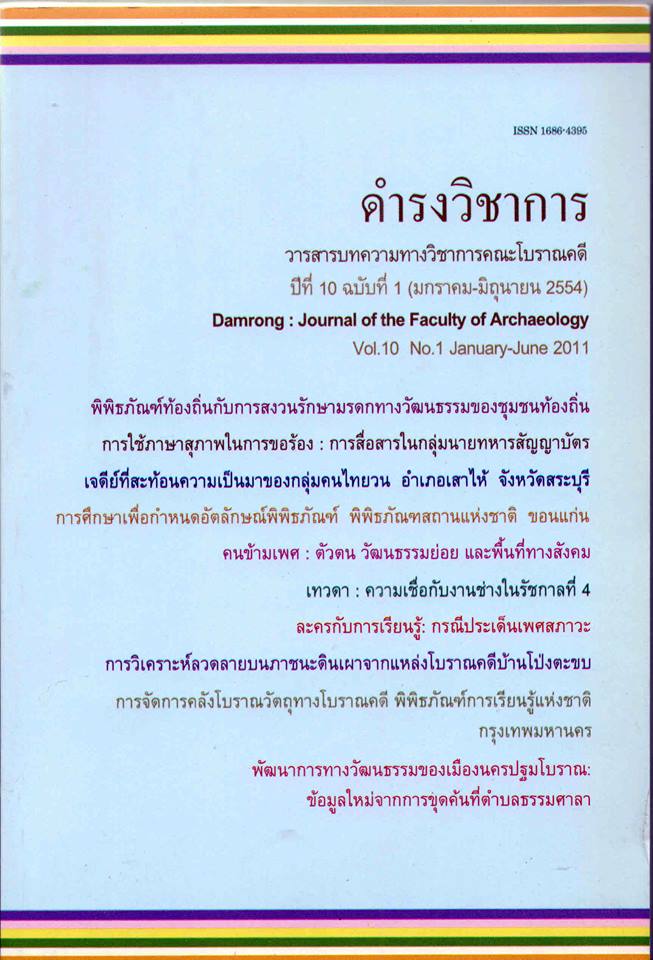THE USE OF POLITE LANGUAGE TO FULFILL A REQUEST: COMMUNICATION IN COMMISSIONED OFFICERS
Keywords:
การขอร้อง, ภาษา, การสื่อสารAbstract
This article aims to study the use of polite language to fulfill a request used by commissioned officers by interviewing the key informants of 90 officers in the Royal Thai Armed Forces o graduated from Chulachomklao Royal Military Academy, Royal Thai Naval Academy and Royal Thai Air Force Academy only.
According to this study, eight strategies of using polite language to fulfill requests were found as follows: 1.Expressing the speaker’s necessity or the speaker’s point. 2.Expressing the speaker’s gratefulness to the hearer 3.Telling the truth. 4.Asking questions. 5.Offering better choices. 6.Asking for the hearer’s conveniences. 7.Offering gifts. 8.Expressing the speaker’s considerations.
This study indicated that the most frequent strategy is expressing the speaker’s necessity or the speaker’s point without any conditions. This strategy can explain the speaker’s sincerity and the importance of the speaker’s appeal by presenting the speaker’s problem, necessity or the point, to the hearer directly, without any suggestion or any personal opinion. This is done in order to show the hearer how sincere the speaker is and how necessary the problem is, so that the hearer can consider by himself whether the hearer should give response in acceptance or rejection.
References
นิเทศศาสตร์, คณะ. ตําราประกอบการสอนวิชาภาษาเพื่อการสื่อสาร.กรุงเทพมหานคร: โรงพิมพ์จุฬาลงกรณ์มหาวิทยาลัย, 2539.
วิไลวรรณ ขนิษฐานันท์. ภาษาและภาษาศาสตร์. กรุงเทพมหานคร: โรงพิมพ์มหาวิทยาลัยธรรมศาสตร์, 2521.
อักษรศาสตร์, คณะ. ตําราประกอบการสอนวิชาภาษากับการสื่อสาร. นครปฐม: โรงพิมพ์มหาวิทยาลัยศิลปากร, 2540.
อมรา ประสิทธิ์รัฐสินธุ์. ภาษาศาสตร์สังคม. พิมพ์ครั้งที่ 4. กรุงเทพมหานคร:สํานักพิมพ์แห่งจุฬาลงกรณ์มหาวิทยาลัย, 2550.
Gabriele K. and S. Blum-Kulka. Interlanguage pragmatics.New York: Oxford University Press, 1993.
Brown P. and S. C. Levinson. Politeness: some universals in language usage. Cambridge [Cambridgeshire]: Cambridge University Press, 1987.
Downloads
Issue
Section
License
บทความนี้เป็นผลงานของข้าพเจ้าแต่เพียงผู้เดียว และ/หรือเป็นผลงานของข้าพเจ้าและผู้ร่วมงาน ตามชื่อที่ระบุในบทความจริง และเป็นผลงานที่มิได้ถูกนำเสนอหรือตีพิมพ์ที่ใดมาก่อน





